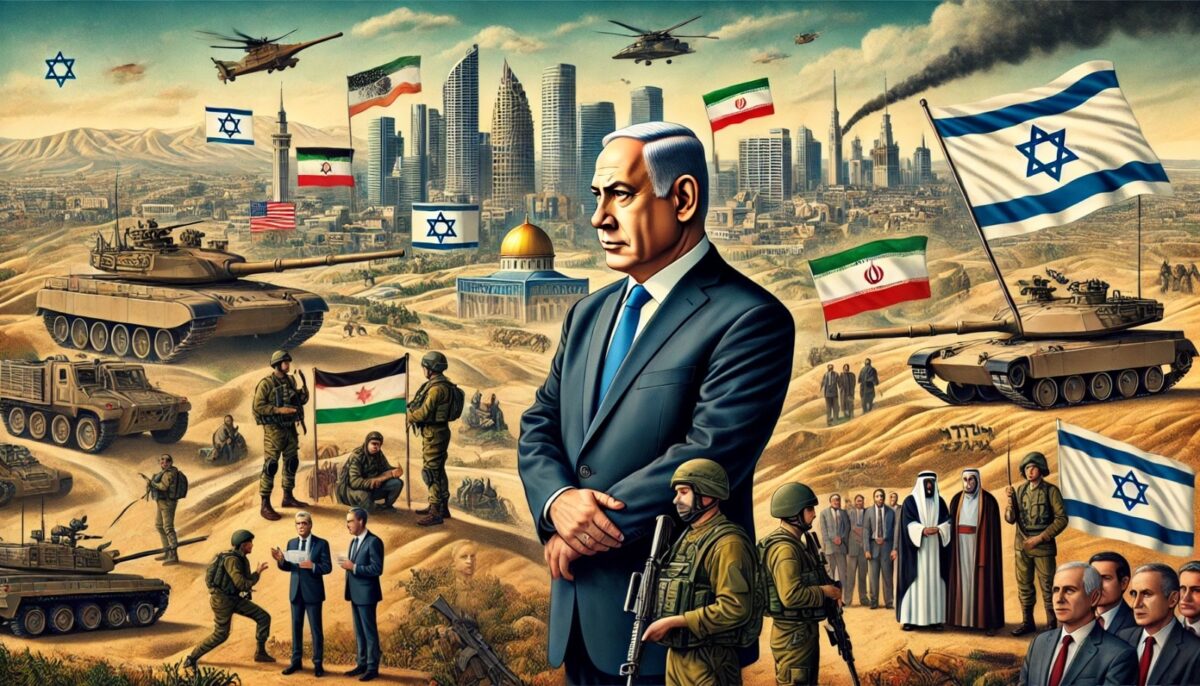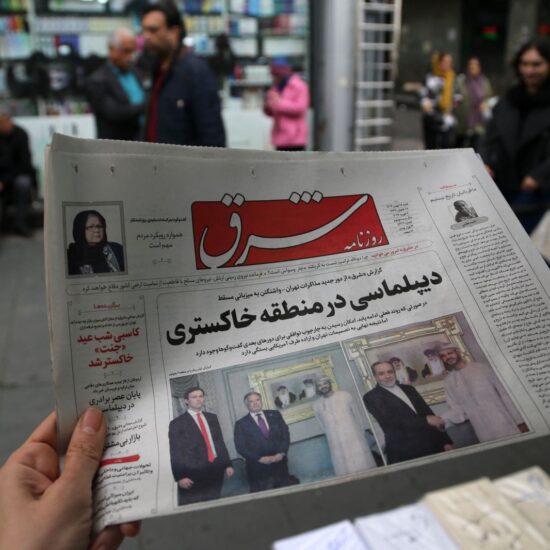
The delicate equation of political, military, and diplomatic factors underscores the role of Israel’s Prime Minister in defining the future of the Middle East
The Middle East finds itself on a knife’s edge, with Israel at the center of a potential storm. At the heart of this tumult is Prime Minister Benjamin Netanyahu, whose decisions could steer the region towards peace or into the abyss of war. Both domestic pressures and international scrutiny are mounting, making his leadership more pivotal than ever. Here’s a closer look at the factors that put the region’s fate in Netanyahu’s hands.
The pressure from within
Netanyahu’s coalition is precariously balanced on the support of far-right parties such as Otzma Yehudit and the Religious Zionism party. These factions staunchly oppose any ceasefire or diplomatic concessions to Hamas unless Israel’s stringent demands are fully met. This hardline stance complicates Netanyahu’s ability to maneuver politically, as any perceived leniency could lead to a collapse of his government.
Internally, Netanyahu faces growing public opposition to the prolonged conflict. The Israeli public is increasingly critical of the humanitarian crisis in Gaza and demands a resolution that prioritizes the safe return of hostages. Protests and public dissent add to the pressure on Netanyahu to find a balanced approach that addresses security concerns while also mitigating humanitarian impacts. The Prime Minister himself has warned that Israel is at risk of a civil war if the protests against the war continue, highlighting the deep divisions within Israeli society.
Military autonomy and strategic calculations
The Israeli Defense Forces (IDF) have demonstrated a readiness to act autonomously, as evidenced by their unilateral truce in Rafah. This independence underscores the IDF’s commitment to what they think serves national security and also complicates Netanyahu’s efforts to present a cohesive government stance. In a country like Israel, where military decisions are closely intertwined with political strategy, this autonomy can lead to significant implications.
For one, the IDF’s autonomous actions can create a disconnection between military operations and political objectives. If the military undertakes operations without full political endorsement, it can undermine the government’s authority and disrupt coordinated policy implementation. This scenario can lead to public confusion and erode trust in the government’s ability to manage national security effectively, which is something not far from happening in Israel.
Moreover, the IDF’s preparations for possible conflict with Hezbollah illustrate the high stakes involved. The military’s readiness to engage in large-scale operations independently suggests that it prioritizes immediate security needs, potentially over broader political considerations. This could escalate tensions and provoke broader conflicts, especially if the military acts preemptively in a volatile region, where their Prime Minister has not made up his mind on how he wants to bring this war to an end.
Diplomatic balancing act
On the international stage, Netanyahu is navigating a complicated web of diplomatic relations. The US, particularly through envoy Amos Hochstein, is pushing for de-escalation and a diplomatic resolution to the conflict. Hochstein’s recent visits to Lebanon and Israel aim to mediate and prevent the escalation of hostilities, emphasizing the US’s desire to avoid a broader regional conflict.
However, Netanyahu’s insistence on achieving all of Israel’s war aims before agreeing to any permanent ceasefire poses a significant challenge to these diplomatic efforts. This stance aligns with his coalition’s hardline views which he needs to adhere to, but risks alienating hardcore international allies and exacerbating regional tensions.
Regional implications
The decisions made by Netanyahu in the coming days will have profound implications not just for Israel and Palestine but for the entire Middle East. Especially given Hezbollah’s clear stance that they do not wish to engage in a large-scale war with Israel, a failure to manage the conflict effectively could lead to a broader war involving Hezbollah and potentially drawing in Iran and other regional actors. Conversely, a successful de-escalation could pave the way for more stable and lasting peace negotiations.
Prime Minister Netanyahu is indeed holding the region hostage with his strategic decisions at this critical juncture. The balancing act between appeasing his right-wing coalition, addressing growing domestic opposition, and navigating international diplomatic pressures places him in a position of responsibility. His next moves will likely determine whether the Middle East edges towards peace or spirals into further conflict. The world watches as Netanyahu makes decisions that will shape the future of the region.
This delicate equation of political, military, and diplomatic factors underscores the high stakes and the role Netanyahu plays in this ongoing saga. Whether he can navigate these turbulent waters successfully remains to be seen, but the consequences of his leadership will be felt far and wide.
Ramzi Abou Ismail is a political psychologist and researcher at the University of Kent.
The views in this story reflect those of the author alone and do not necessarily reflect the beliefs of NOW.








